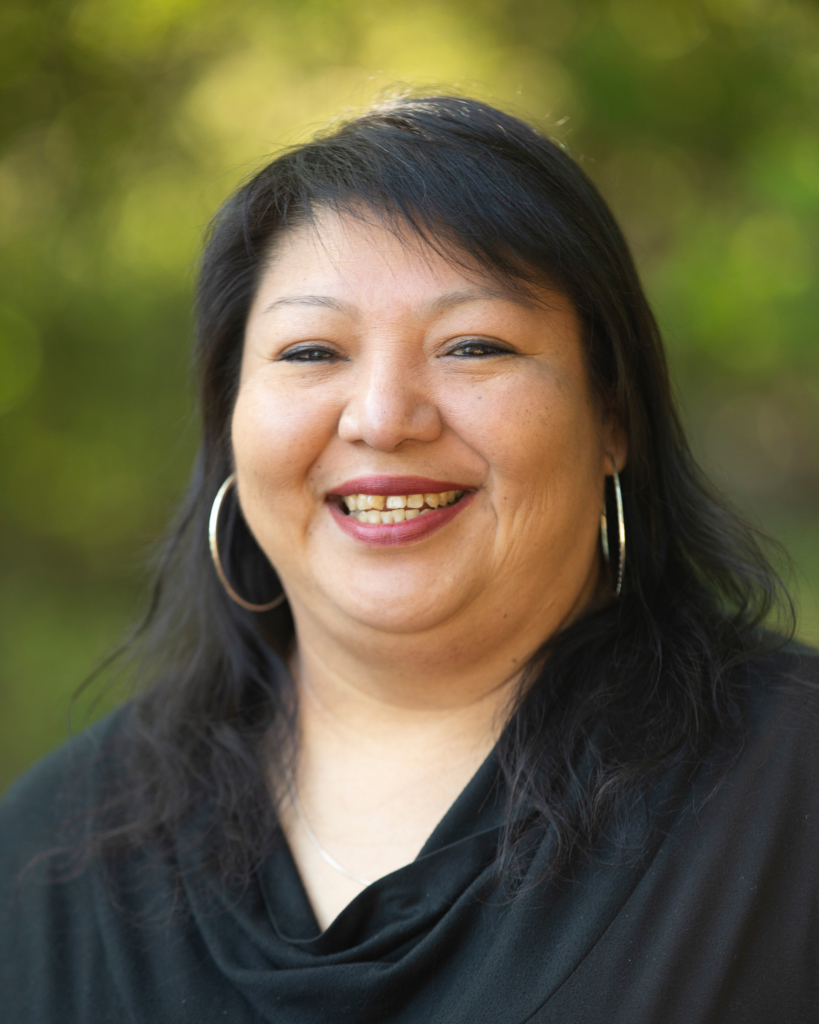The Citizen Potawatomi Nation has joined other area tribes to help reduce the number of Indigenous people who are experiencing homelessness.
Representatives of CPN, the Absentee Shawnee Tribe, the Kickapoo Tribe of Oklahoma and the Sac & Fox Nation comprise the Native Homeless Alliance, which formed in July 2023. The group meets monthly in Shawnee to discuss outreach efforts.
A February 2022 City of Shawnee report said 31 percent of the Shawnee unhoused population was Native American. The Alliance set a goal to cut the rate of Native Americans experiencing homelessness by 50 percent by July 2024. As of November 2023, the Native American homelessness rate was 22 percent, a City of Shawnee press release said.
Recently, the city received criticism following the passage of two controversial city ordinances. The first, passed in November 2023, requires a city permit prior to feeding groups of people in downtown Shawnee. The second, passed in December 2023, prohibits sitting or lying down on sidewalks in downtown Shawnee.
However, the Native Homeless Alliance is focused on providing services that can help individuals achieve a more stable living environment and further reduce the number of Native Americans experiencing homelessness.


Community Services Counselor Michelle Ramirez is one of CPN’s representatives on the Native Homeless Alliance, along with Safe and Stable Families Counselor Stephanie McElfresh. Other members include Judy Shed, executive director, Kickapoo Housing Authority, Tara Wallace, community relations coordinator, Absentee Shawnee Housing Authority and Mindy Eicher, adult protective services, Sac & Fox Nation.
Complex causes
Ramirez said events such as economic downturns and natural disasters like the April 19, 2023, tornado have contributed to the current crisis.
“A lot of people are in need; they lost their own home, or their rental home. The landlords aren’t contracted to give them another home because that (home) was destroyed. So, we had a lot of families that were displaced,” Ramirez said.
Around that time, a representative of the City of Shawnee reached out. Together, the group decided to increase outreach to offer services to tribal members and to Native Americans within their jurisdictional boundaries.
The factors that cause a person to become unhoused are often complicated, Ramirez said. People may have lost their job, then lost their home, or they may be battling substance abuse or have untreated mental health disorders that make it difficult to remain employed.
Breaking barriers
The clients they hope to assist do not always welcome services that will provide housing. Some have lived on the street for so long and adapted so that any change is upsetting, Ramirez said. Patience is key.
“If they have been on the streets for a very long time, they feel like it’s their home. They can’t imagine being in a home. They may be scared because they feel like they’re going to be by themselves,” she said. “They just want to be heard. We can help identify what the barriers are, then we know what resources we need to tap into.”
Being more visible in the community has helped the group develop trust with clients, something that hopefully will lead to more people accepting services, Ramirez said. Trust is essential because some clients may have had a previous bad experience with social service agencies.
Other clients worry their use of drugs or alcohol may prevent them from receiving services, when in fact, they may qualify for behavioral health treatment for their addiction.
There may still be challenges after someone has accepted services. Tribal housing programs, often federally funded, may restrict residents with certain criminal backgrounds. While specific regulations vary from tribe to tribe, it is still difficult to navigate the rules.
Sometimes there are other difficulties that the group hopes to tackle. Some landlords have refused to accept tribal housing vouchers, Shed said. Whether that is due to the program’s complexity, paperwork requirements or other issues is yet to be determined.
Gathering resources
After a few meetings, the group decided to organize a Native American Resource Fair where unhoused tribal members could easily connect with tribal representatives and learn more about available services. Often, the unhoused do not have transportation, and very few affordable public transportation options exist, making it difficult to travel to their tribal offices to receive services.
“We want them to be able to be open with someone else about what they’re going through and then meeting them where they’re at because they might be comfortable with where they’re at,” Wallace said.
The Alliance also helps tribal members who don’t have documentation. Many federal programs require tribal issued identification for participants to qualify. Fortunately, a local church stepped in and offered the use of its address so individuals could obtain identification.
“When you are just living out of a backpack or just a little bag, your stuff gets stolen, or you lose your IDs all the time,” Ramirez said. “But the church has stepped up and lets them use their address and they can get their mail there. And if they want to keep their IDs there, they’re secure.”
This unique solution was “huge,” Ramirez said. “Coming together with communities and churches and just whatever community, organization that stepped in to fill the gap as to what was needed was a wonderful step.”
Other sources of funding may help applicants pay rent and cover a deposit. Other options include transitional housing that allows an applicant to pay a small fee while they obtain employment and save their funds toward their own rental.
“Some people may think, ‘Oh, they can’t help me because I don’t live in their jurisdiction.’ But there are programs like emergency tribal funding. There are things that tribes can help with if they’re out of their jurisdiction,” Ramirez said.
The resource fair was a success, with 80 people attending.
Wallace and the group give credit to Erika Genty, former City of Shawnee Homeless Program Coordinator, with the Alliance’s early success.
“Erika has done a tremendous amount of legwork because it’s not just ‘Here’s a flier,’ but actually one-on-one conversation, just letting them know, ‘We care, and we’re actually going to do something about it,’” she said. “We just reach out to one another and with all of our resources put together, it’s just amazing.”
“Our goal was to bring the Native American homeless population down by half within the first year. And we did it within the first five months,” Ramirez said.
She was encouraged as she watched other tribal departments and community groups jump in to help. During a recent cold snap, Alliance members helped support a warming station near downtown Shawnee, gathering donations like hats, gloves, blankets and toiletry items. The Alliance also sponsored an evening meal for the people at the warming station.
The next level
The time they have spent together as the Alliance has improved their overall communication. Members can easily contact each other and quickly refer clients to available services.
“Now we have such a good network, and we have each other’s cell phone numbers. Sometimes we wonder, ‘Why didn’t we do this a long time ago? What took us so long?’” Ramirez said.
The Alliance is eager to take their services to another level that will increase outreach.
“We have recently decided to become a nonprofit. We’re going to work towards getting our 501(c)(3). That way we can actually start asking for funding, and then we can (offer) our own resources. We have so many goals. We’re so excited,” Ramirez said.
Shed said housing programs are often restricted how they may spend their funds, but a nonprofit organization would have more flexibility to help clients.
“We’ve been talking about people donating so that money can go into things that we can’t pay for,” she said. “It would open that up for greater needs that can’t be met within our jobs.”
With the non-profit designation, the group could even qualify for additional grant funding. They have discussed creating a mobile health unit or helping clients with misdemeanor convictions have their records expunged to more easily qualify for housing. Overall, their goal is to help break down some of the huge barriers to obtaining housing into small, workable pieces.
The group would like to see the City of Shawnee apply for Continuum of Care through the U.S. Department of Housing and Urban Development. The program provides funding for nonprofit providers and state and local governments with the goal of ending homelessness.
Currently, the program covers a three-state range that includes Oklahoma, Arkansas and Texas. There have been few applicants so Ramirez is hopeful this untapped funding would support additional efforts.
“That would be money that the city can get and use towards homelessness initiatives that they bring about. It’s great that Erika put that into play,” she said.
Long term, the Alliance would like to be able to accept community donations. Grassroots efforts in the community have helped a great deal, from donations of food, clothing, personal care items and more. However, they would like to manage larger donations as well.
“There’s so much that we know we can do. We already have community members and churches that have reached out and said, ‘You are doing great things. How can I help?’” Ramirez said.
She said she’s grateful for Genty’s leadership. Many of the area’s unhoused have developed trust with Genty and visit the Homeless Resource Center.
“I think, forming the Homeless Alliance and then the Native American Alliance has helped so much,” Ramirez said.
For more information, visit cpn.news/workforce or call 405-878-3854.
